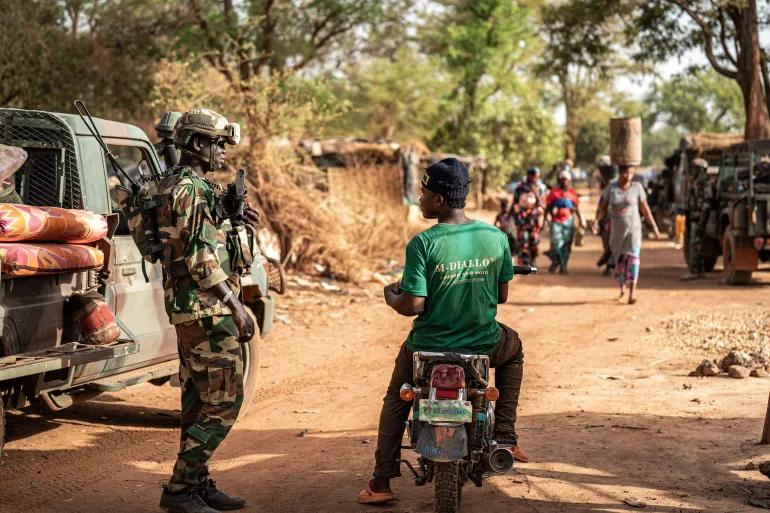
Faced with escalating jihadist attacks in western Mali, Senegal has stepped up its border security with a decisive new strategy aimed at protecting its eastern frontier.
Over the weekend, the Senegalese government deployed three new gendarmerie units in key border regions, signaling an urgent and strategic effort to prevent any armed infiltration from its unstable neighbour.
Since early July, the border zone between Mali and Senegal has experienced heightened instability.
The Group for the Support of Islam and Muslims (JNIM), an al-Qaeda affiliate, has launched a series of coordinated assaults in Malian territory near Kayes and Dibali — the latter directly across the Kidira border crossing into Senegal. Seven simultaneous attacks in this area have sparked serious concern within Dakar’s security apparatus.
While Senegal has so far avoided direct attacks from jihadist groups operating in the Sahel, authorities are now deeply wary of the threat spilling over into their territory.
The challenges posed by porous borders, the mobility of militants, and the prevalent use of motorcycles for rapid armed incursions all exacerbate the risk.
In response, Senegal activated three specialized units on August 2.
These include a gendarmerie legion stationed in Kédougou, a mountainous region bordering both Mali and Guinea; a research brigade deployed to Tambacounda, a critical transit hub to Senegal’s interior; and a rapid action surveillance and intervention group (GARSI) in Saraya, a town near mining zones often targeted due to its isolation.
The General Staff of the Defense and Security Forces underscored that these moves are designed to “guarantee the protection of populations and property as well as the security of the national territory.” They also stressed the vital role of civil-military cooperation and urged local communities to bolster collaboration through community intelligence initiatives.
Additional measures have been implemented to curb risks, notably the prohibition of motorcycle travel between 8 p.m. and 6 a.m. in the Bakel border department since July 24 — a tactical restriction targeting the preferred mode of transport used by armed groups for swift and stealthy incursions.
Although this militarized approach addresses immediate threats, it also prompts questions about the long-term sustainability of Senegal’s security strategy. For Dakar, the challenge is not only to contain external jihadist pressures but also to build resilient local communities. Economic development, state presence in remote areas, and regional cooperation through frameworks such as WAEMU and ECOWAS are essential to prevent the Sahelian cycle of violence from spreading south of the Senegal River.



